BANANAS IN THE TIME OF COVID
You will not miss it. A small, ramshackle tea-shop, balanced
on rickety wheels, with packets of ‘ghutka’ streaming down the sides. The aroma
of dosas roasting on the tawa, spiking the cool Bangalore air. A huge,
steel-grey flask full of freshly over-brewed tea balancing on a pile of bananas.
Good-luck charms representing myriad gods dangling from the tin roof. Valliamma’s
mobile sustenance centre, parked in an empty plot at the entrance to the road
where I live.
Every day at 7.30 AM, Valli Amma and her family would arrive
with the cart. Parking it at the usual spot, the family would start work at a
frenetic pace: brewing tea, frying pooris, roasting dosas, cooking rice,
sambaar, bhaaji and chutney. All the while, the sinfully tempting aroma of chilli
bajjis being fried would melt the resolve of passers-by like Sunny Leone in a
wet saree.
By 8 AM, the guests would start arriving. It would be a
trickle initially; the few gym-goers dropping by for a fresh cuppa, walkers
picking up their morning fix of a Gold Flake King with tea. Slowly, the flow
would pick up, soon ballooning into a surging crowd that gobbled up lemon rice,
pooris, dosas, double omelettes and raw-banana bajjis with alarming speed.
All the while, unbeknownst to the milling crowds, the family
would be enacting a perfectly orchestrated process of managing the operations.
Production, supply chain, quality control, guest relations, public relations,
housekeeping and collections would run in a seamless rhythm, managed by CEO-cum-chef,
her husband, and two sons.
To even think that there could be a better-managed
establishment in Fourth Block, Koramangala, would be sacrilege. And, without
even discerning the Druckerian precision that made the outlet flourish, guests
lined up – arriving on bicycles, two- and four-wheelers and even the
occasional Audi.
Somewhere along the way, I too became a regular at the tea-shop.
Having always believed in the soul-settling combination of solitude, cheap over-brewed
tea and cigarette, I would saunter up to the corner every morning for my fix
and some gupshup with the family. Becoming friends with the family members was
easy; such were their smiles and open-hearted, endearing nature. Soon, we
started exchanging tiny expressions of friendship and affection: an extra poori
for my wife, a box of chocolates that my daughter had brought from ‘Amreeka’…
Not that it was always smooth sailing for the establishment.
A couple of times, it was evicted from the plot, as the owner lay claim on his
rightful property. A huge canal being dug along the edge of the road reduced
access greatly. But each time, the family would gently adjust to the new
reality and inching back to full capacity.
Then one day, it happened. The fear of the virus gripped the
world. The stall had to be shut down, and the family retreated to its hut a few
streets away.
As I lived on in my privileged world, unhappy with the 20%
cut in my fee that one of my clients requested for, and craving for my favourite
cocktail, one day the thought hit me. How would Valliamma and her family be faring?
After days of playing with the thought, finally I made it to
the hut this morning. It was easy to spot, thanks to the rickety old cart parked
outside. Suitably masked and tip-toeing like an obese ballerina, I knocked at
the door. An old woman - presumably Valliamma’s mother – opened the door. Soon,
the entire family followed, smiling.
Yes, it has been hard, they told me. But they were fighting
back; the husband was selling bananas in a cart at the junction, and they were helping
a friend sell vegetables. They had no idea when life, and their earnings, would
return to normal. But they were still smiling.
Gently, tactfully, I asked Valliamma’s son Murali: “Could I
give you some money”? After a moment, he smiled again; I could see his eyes
gleaming just a wee bit. He said, “Not now, Anna. If we need it, we’ll ask.”
As I left, Valliamma wrapped up three ‘Yelakki’ bananas in a
newspaper and placed it in my hands. “This is for sister”, she said. And I saw her
eyes, too, gleaming.
Without doubt, those were the three most precious bananas I had ever
touched.


























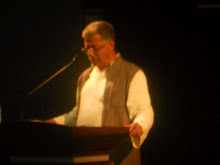





























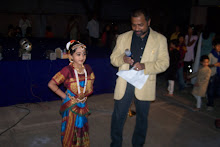





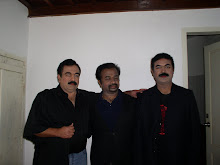
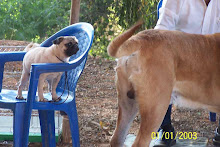
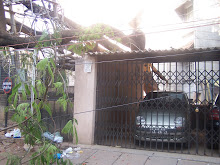



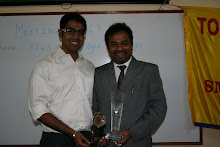











No comments:
Post a Comment